Diagnostics Program
Access to diagnostic technologies in developing countries is still deprived of the vast majority of the population due to insufficient infrastructure, the few and overrun diagnostic centers, as well as the associated high costs for diagnostic tests. This presents an enormous problem in fighting diseases. Besides in medical sectors, diagnostics is also demanded in other sectors, such as in quality control of drinking water or in agricultural diagnostics for early detection of plant pests to prevent crop failures.
Microscopy is an indispensable and versatile technology in diagnostics, which is according to the World Health Organization WHO still one of the gold standards for many diseases. Furthermore, the direct microscopic visualization of pathogens, for instance in parasitic or bacterial diseases, is highly reliable.
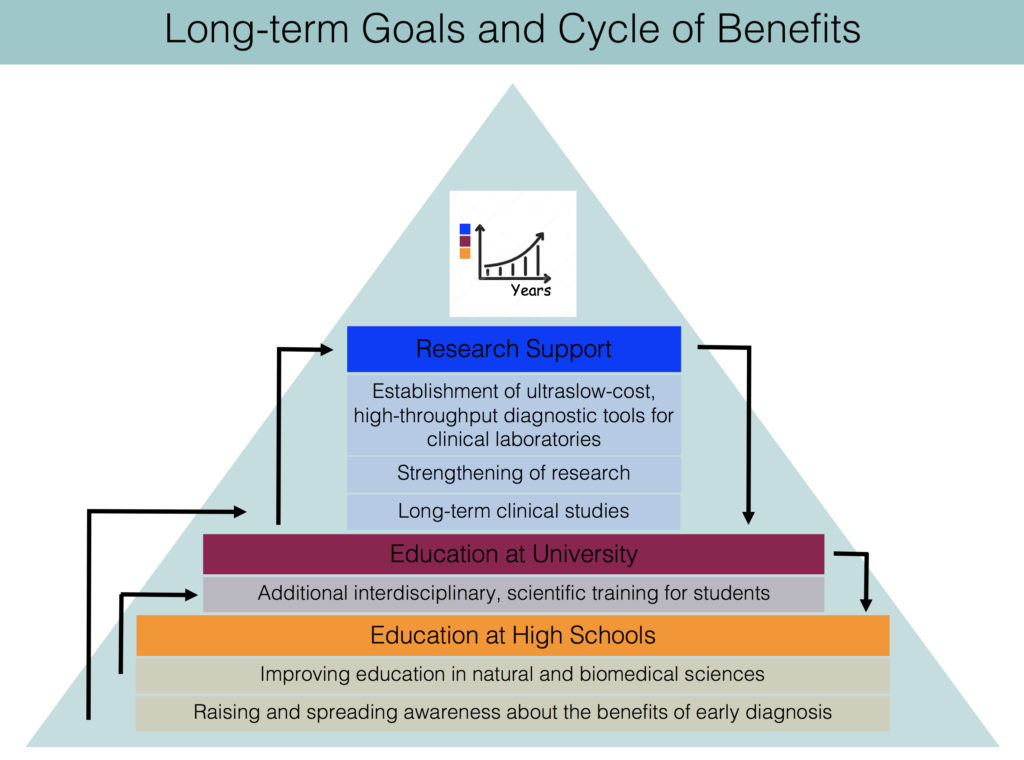
Projects
Based on newly invented, ultra-lowcost microscopy technologies primarily developed for developing countries, we build up the RVCP Diagnostics Division. We spread knowledge of how to build and use the paperfuge (20 cents), a papercentrifuge and about a foldable paper microscope called Foldscope (1 Dollar) at high schools and universities. This supports and strengthens practical education in biomedical sciences and motivates high school students to start studies in natural or medical sciences. We additionally teach the importance of the concept early diagnosis/early treatment/better health outcome since many Rwandan patients go to the hospital in very late disease stages or even die undiagnosed.
In parallel to the high school and university teaching projects, RVCP Diagnostics initiated two long-term clinical studies in malaria and cancer with the Octopi Microscope at the University Teaching Hospital of Butare. The Octopi Microscope (250 Dollars) is a modularly composed high-throughput microscope and is one of the cheapest microscopes known of this type. It is coupled to an automatic read-out software that constantly improves and becomes more and more powerful due to machine learning. The Octopi as well as the paperfuge and the foldscope were invented by Prof. Manu Prakash, Bioengineer at Stanford University California. In direct cooperation, Dr. Djibril Mbarushimana, Head of the Pathology Department and Chief of the Clinical Laboratories at the University Teaching Hospital of Butare (CHUB), and Prof. Prakash will run the clinical studies with blood and tissue samples of patients from selected Rwandan District Hospitals and from the CHUB to examine the validity and reliability of the Octopi read-outs in malaria blood and different cancer tissues. Rwanda has only few imaging facilities with limited access for people from low income classes. Furthermore, cancer incidence are high and expected to rise. Hence, conducting studies in alternative cancer diagnostics are extremely urgent.
Goal of RVCP Diagnostics – Cycle of Benefits in Research and Education
The overall goal of RVCP Diagnostics is to create a long-lasting cycle of benefits between all three subdivisions High School Education, University Education, and the Clinical Studies. Motivating high school students for natural and medical sciences lead to an increased enrollment in these subjects at universities, while more university students graduating in natural sciences also increases the Rwandan scientific academic staff, which will be demanded to run more clinical studies and research projects. An increased patient number needed for the clinical studies will be obtained by spreading our teaching concept early diagnosis/early treatment/better health outcome, which is to the health benefits of the patients as well. Once the clinical studies and research have made progress, this new, gained knowledge can be taught to university students who then can further spread this knowledge again at high schools, where the cycle starts anew.
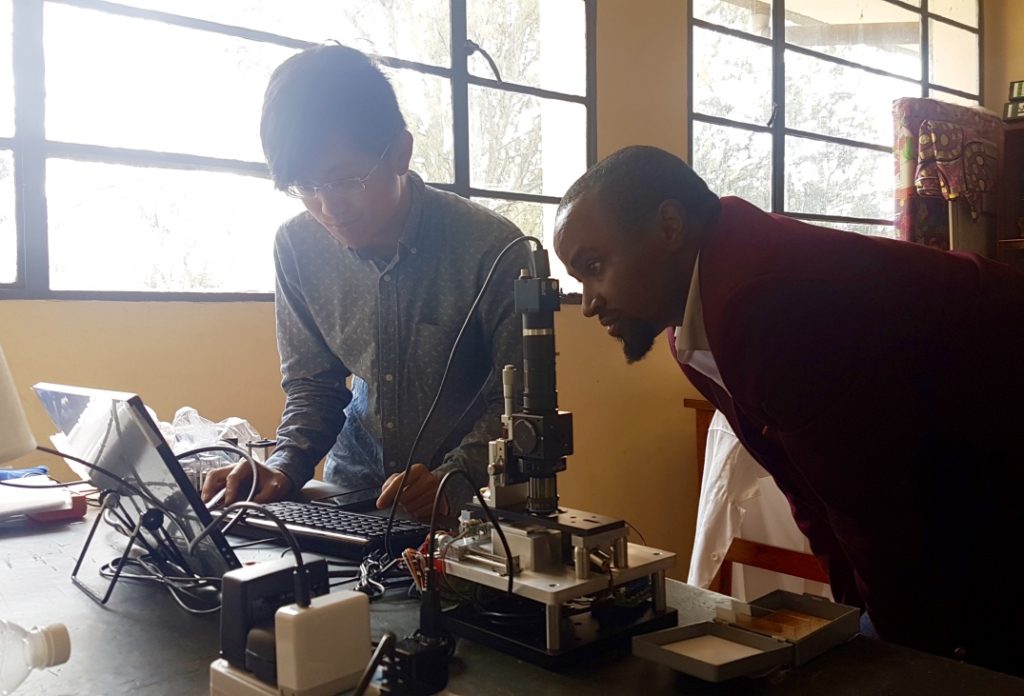
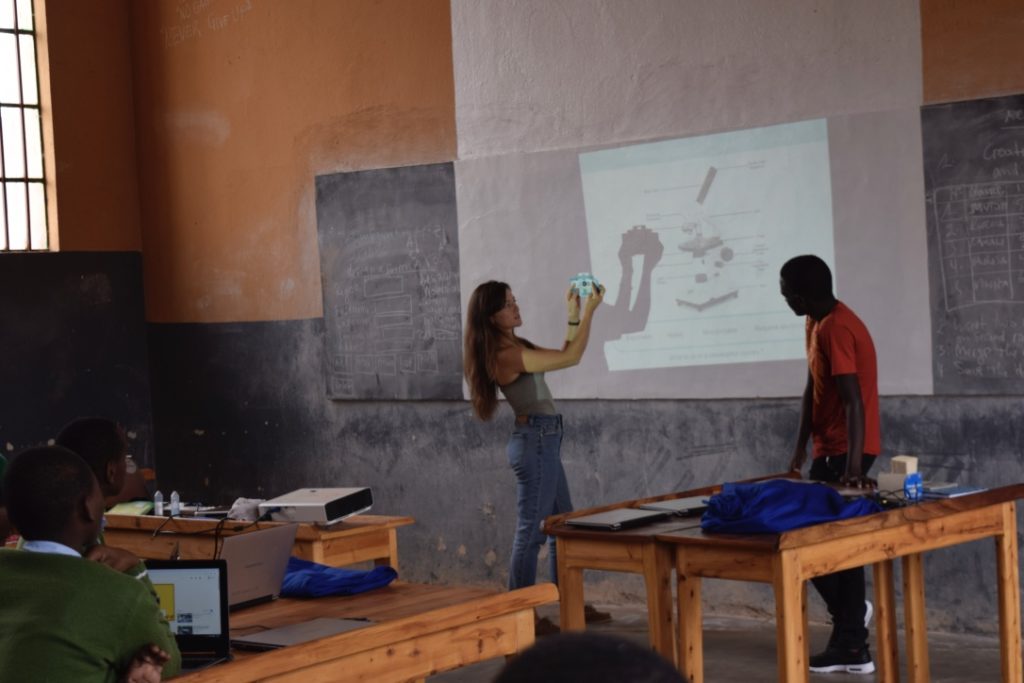
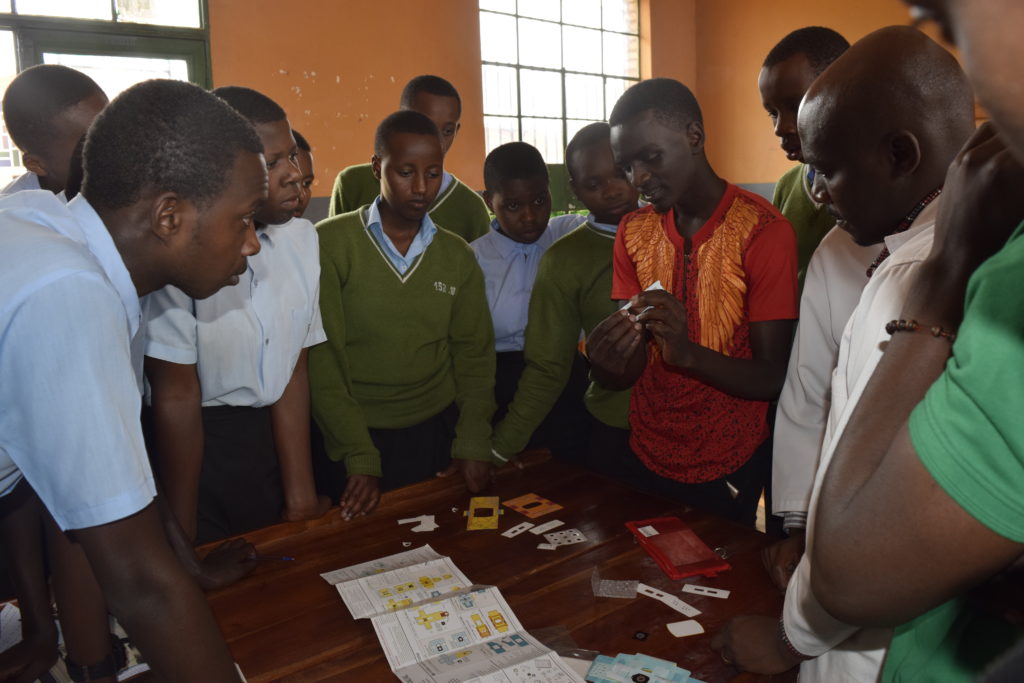
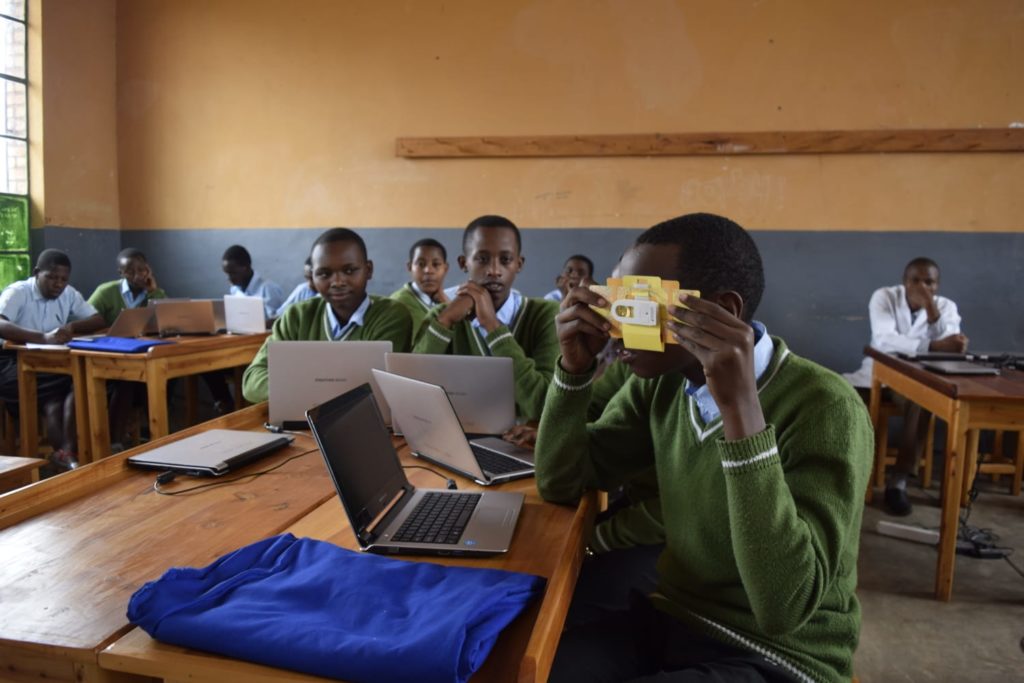
More information
Paper centrifuge, Foldscope and Octopi – three new ultra-lowcost diagnostic tools – what these technologies are and how they work:
Paper centrifuge:
Video: https://www.youtube.com/watch?v=cuYvNIGTC6Y
Publication: https://www.nature.com/articles/s41551-016-0009
Foldscope:
Video: https://www.youtube.com/watch?v=ky-cqSI5mwE
Foldscope Homepage: https://www.foldscope.com
Foldscope Community Homepage: https://microcosmos.foldscope.com
Publication: https://journals.plos.org/plosone/article?id=10.1371/journal.pone.0098781
Octopi:
Twitter Story Manu Prakash: https://twitter.com/prakashlab/status/1144453714637230083?s=21
Publication: https://www.biorxiv.org/content/10.1101/684423v1
